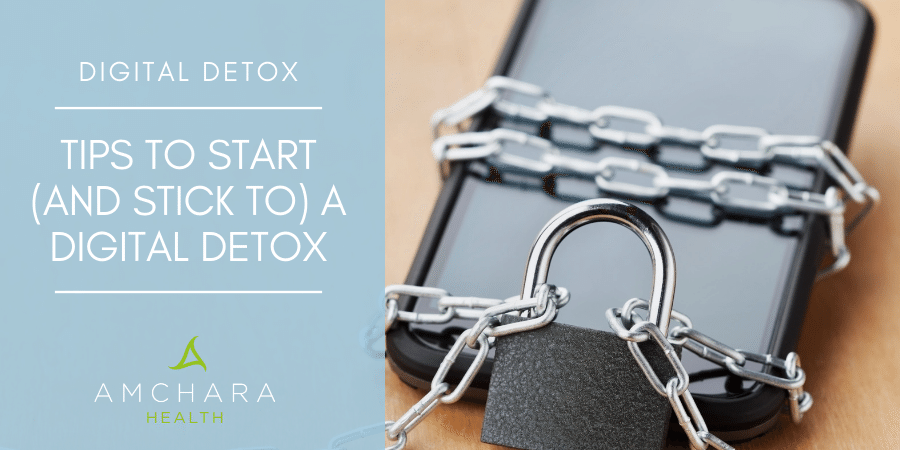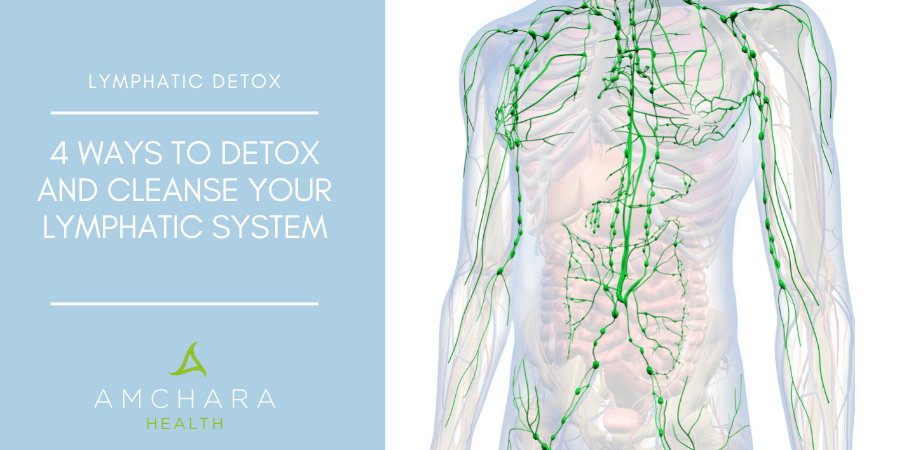Topics Covered in this article:
The use of technology is ever increasing and although manufacturers will claim their devices ‘make your life easier’, ‘free up your time’ or ‘provide speedy solutions’, the evidence is showing that overuse of smartphones, tablets, computers and other devices is having a negative effect on health.
In this article, we discuss how technology really impacts the body and mind, the influence on relationships and how to incorporate a digital detox to reboot your health.
Why have a telephone just for making calls when you can have one that takes photographs, reminds you of events, functions as an alarm clock, allows you to access e-mails, helps you to catch up with the latest news or plays your favourite music?
It can be easy to see why the rise in smartphone use has been so dramatic. It is not just smartphone exposure that is becoming a problem but the use of computers, laptops, tablets, eBook readers, TVs, fitness trackers and personal music players is also on the rise.
With 78% of people owning a smartphone and 58% a tablet, it is estimated that the average person spends one full day a week online (1) and screen time exceeds the amount of time asleep each day!
What is fuelling the rise in use?
Times change and technological advances over the years have led to a digital world where devices are smaller, more portable, have more functions and tap into some of the needs of consumers.
Although manufacturers of devices may play a large role in the increased use of devices they cannot be completely blamed. Human psychology may be in part to blame. Humans are social animals and we all want to be part of a social structure. Technology is now providing a platform to expand social structure.
The desire to be ‘liked’ on social media, thoughts or opinions to be ‘shared’ and for praise from peers is a strong driving force. The need for social validation involves the dopamine reward pathway.
Dopamine is a neurotransmitter that is associated with reward and pleasure and when released creates motivation to repeat the behaviour that triggered its release. The more the reward system is triggered the more likely you are to repeat the behaviour which may lead to a form of addiction. So, checking your phone to seek that reward becomes habitual, a kind of digital addiction.
Ask yourself why you are picking your phone up next time you reach for it, do you really need to? Or is it through habit? You may be surprised by the answers.
What are the effects of digital addiction?
Whether you are using digital devices for work purposes, keeping track of family members, entertainment or for that social validation the effect of overuse is becoming clear. We are so addicted to our phones that it has led to the development of terms such as nomophobia – defined as a fear of being without your phone or losing connection (2). The term FOMO is also often used and is the Fear Of Missing Out, often driven by events on social media.
Regardless of the terminology, what is clear is that the use of digital devices, and in particular smartphones, is driving an increase in anxiety (3). This effect may be more pronounced in adolescents and younger adults – perhaps because they spend much of their time attached to one digital device or another.
Increased use of devices is also linked to the development of depression (4), this is not only relevant for smartphone use but internet use in general and online gaming also increases symptoms of depression.
Sleep patterns can be significantly affected by overuse of technology, partly explained by the fact that devices emit blue light which inhibits the production of the sleep hormone melatonin, particularly if eyes are exposed to it in the evening or at night time (5).
Studies also show that the electromagnetic field emitted from digital devices may be responsible for sleep alterations (6) and may change blood flow to parts of the brain (7).
Physical issues also occur and the angle at which the neck is held whilst looking at handheld devices is known to create tension in the neck, change pain threshold and may lead to headaches (8).
It is not just the health implications that cause concern. The use of digital devices has discouraged people from interacting face to face, relationships can be affected, and social anxieties may be fuelled. Although social media may allow for an expansion on the number of people you may be in contact with it does not compare to feeling connected to another individual through one on one communication.
With such compelling evidence, there has never been a better time to do a digital detox. Like breaking any habit, it may be hard to start with, but you will soon feel the benefits of rebooting your health and relationships.
Digital detox tips to reboot your health
Let’s face it, this won’t be easy. Giving up any habit takes time and it may be around 3 weeks before you finally feel like you are in the swing of things. The first 4-5 days may well feel the worse and positive coping strategies may be needed to help you through.
It can be easy to fall back into bad habits and if it happens once or twice, forgive yourself, you are only human! The important thing to remember is that the changes you make now will be most beneficial if you make them part of your normal routine and keep them up in the long term.
Top digital detox tips:
- Set specific boundaries that the whole household has to stick to – with a forfeit if they break the rules. Be strict!
- Ban devices from the dinner table.
- Avoid using devices when having a conversation – give the person your full attention.
- Never use a device when you are walking.
- Don’t eat lunch at your desk in front of your computer – step away and eat lunch in the canteen, dining area or out in the fresh air.
- Instead of sending a text or email to a colleague in the same building, get up and go and talk to them instead. The same applies at home, avoid sending texts or messages to family members when they are in the house with you (this one may be tough to explain to a teenager).
- Turn off notifications from apps and e-mail alerts – this reduces the temptation to look.
- Unsubscribe from non-essential email lists – this will help you navigate through your inbox a lot quicker.
- Let colleagues know that you are unavailable via email, text, WhatsApp or other messaging services after a set time of day.
- If you are planning annual leave set an out of office message and stick to it, don’t be tempted to “just check”. Everyone is entitled to time away from work.
- Revert to using a camera for taking photographs and avoid using your phone camera.
- Keep your phone out of sight and reach when in the car. Despite the ban on using mobile phones whilst driving, accidents and fatalities related to using phones whilst driving are still occurring.
- Invest in a roadmap and ditch the sat nav, avoid using your phone app to provide directions.
- Switch your phone on flight mode in the evening or even better turn it off.
- Have a charging station away from the main room in the house for all devices.
- Avoid using devices after 8.30/9 pm to cuts down on blue light exposure.
- Install f.lux on your phone, laptop, computer or tablet if you do need to use them in the evenings. f.lux is blue light limiting and gives the screen an amber glow.
- Leave all devices out of the bedroom.
- Swap your eBook reader for a paperback.
- Get an alarm clock, preferably an old-fashioned one not an electric one and do not use your phone as an alarm.
- Turn your wi-fi off at night.
So, armed with these handy hints here are plenty of positive changes that can be made to reduce your exposure to digital devices.
Now, here is the hardest part – in order to get maximum benefit a digital detox should include regular periods without the use of any devices. On top of being tech-free in the evenings take a full day, or two, at weekends to ditch the devices. If this all seems like a tough task – remember to have positive coping strategies to hand. This can really help prevent you from falling into old habits.
Positive coping strategies:
- Be creative – take up arts and crafts, knit, sew, draw, paint – anything that makes you feel good.
- Read a book – a real book, not an electronic one. Become immersed in the story or find a factual book that inspires you.
- Write a book! It is said that everyone has a story to tell.
- Have a warm, relaxing bath.
- Arrange a get together with friends.
- Go for a walk.
- Do yoga, tai chi or Qigong.
- Learn a new recipe and invite friends over to try it.
You will soon find that you have more free time and you will be able to incorporate all the beneficial activities that you used to and more. In the long term, you will not miss your digital device and you will gain an improvement in mood and sleep and stress levels will reduce.
READ THIS NEXT:





